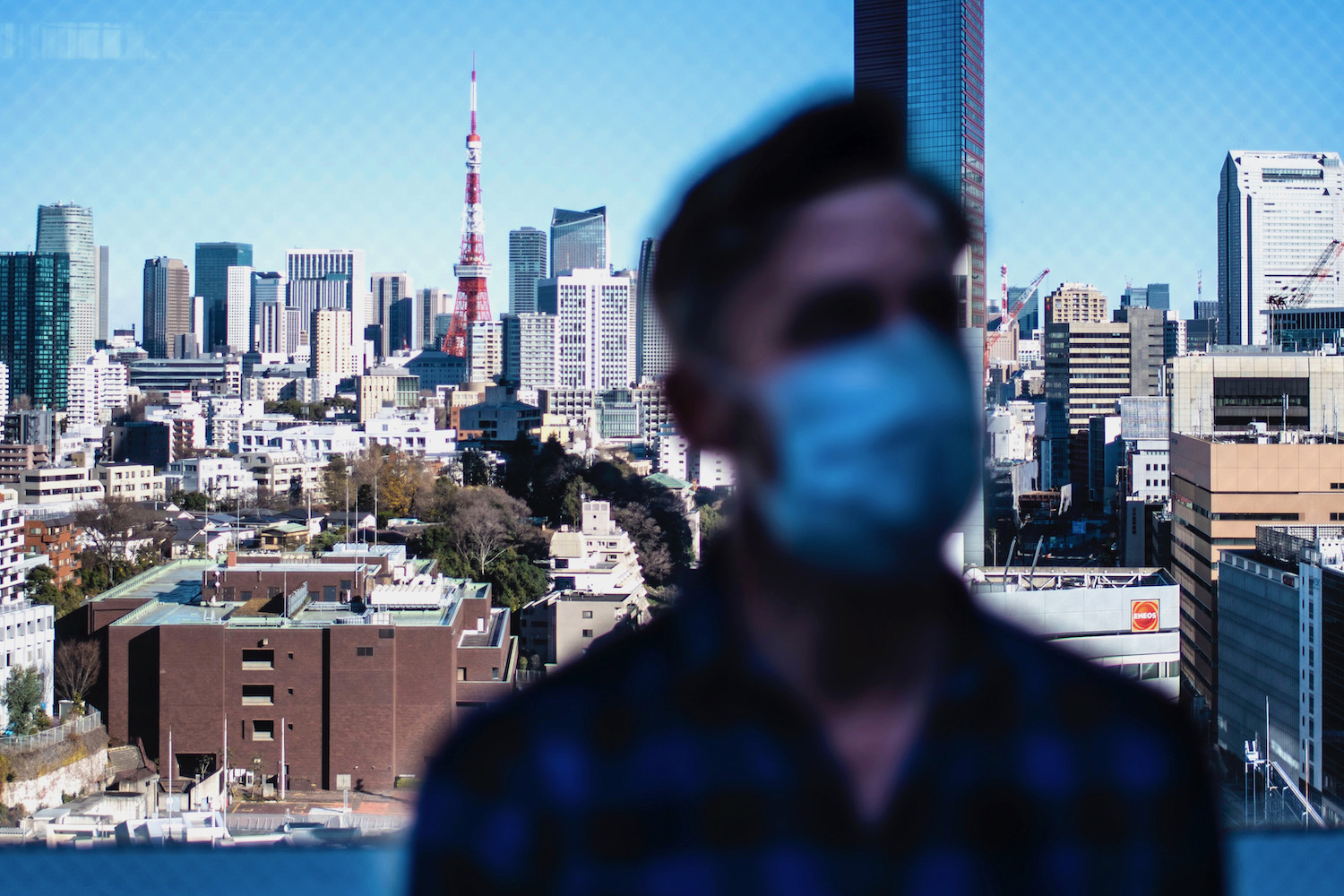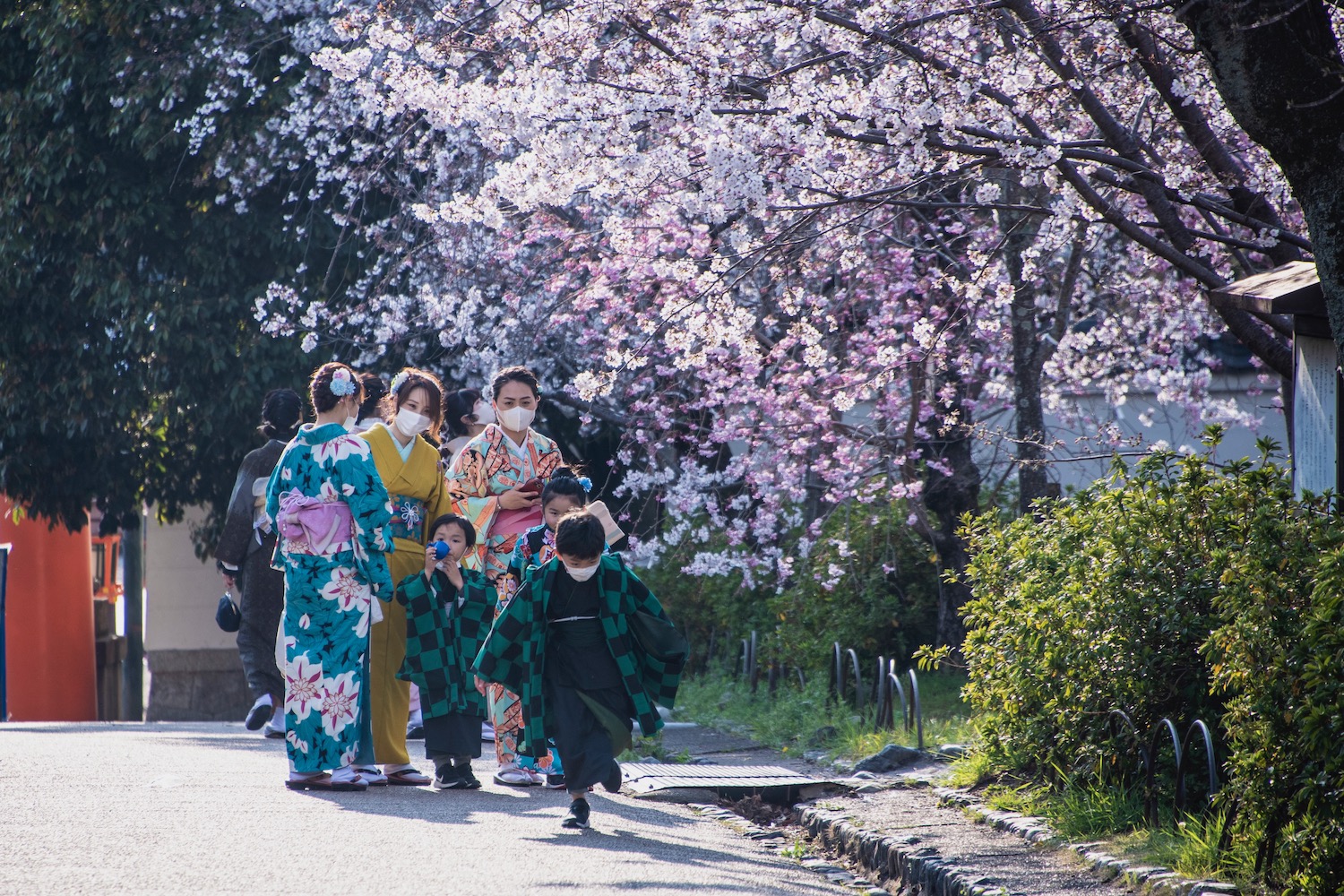Traveling in Japan during the years before covid-19, I always found the country’s flirtation with face masks curious. They weren’t ubiquitous—you’d maybe see a person or two on the Tokyo Metro wearing one during the winter, or perhaps a random granny donning one outdoors during hay fever season—but they were conspicuous.
That all changed in March of 2020, when virtually everyone in Japan started wearing masks 100% of the time, notably without a legal mandate to do so. Even in 2026, you can expect that at least 50% of Japanese people you meet will be wearing masks, even outdoors and in their own cars.
The reasons for Japan’s sudden embrace of widespread masking are more complex than they seem, as are the reasons for the refusal of Japanese people to take their masks off. As someone who spends way more time in Japan than the average foreigner, I consider myself the perfect person to set the record straight.
Has Everyone in Japan Always Worn Masks?
Early in the pandemic, well-meaning experts would often cite Japan as a reason that masks should not only be worn, but mandated. According to them, large numbers of Japan people had always worn masks to ward off respiratory viruses. Unfortunately, this was both an inaccurate characterization of masking wearing in Japan—it wasn’t ever mandatory—never mind the faux-pas of using Japanese customs to justify Chinese-style restrictions.
While it’s true that the practice of masking has existed at least on the scale of decades in Japan (and maybe centuries), it was only after SARS in 2003 that it became ubiquitous, at least for the purpose of mitigating the spread of viruses. Indeed, in my own experience prior to 2020, masks remained relatively rare (somewhere between 1-5% of people in a given place), and weren’t being worn for obviously medical purposes.
The True Reasons Japanese People Wear Masks
Conformity
Japanese society is highly conformist, with it being just as important to follow the leader as it is not to stand out from the crowd. While masks weren’t commonly used to achieve conformity prior to covid-19, many Japanese people I know told me they only masked because they didn’t want to be seen as rebels or outliers, not because they feared the virus or thought masks protected them from it.
Anonymity
When thinking about masks in Japan before the pandemic, one thing that stands out to me is how easy it was to miss the masks if you weren’t looking. This makes sense when you consider the anonymity was (and, I suspect, still is) a major goal of people who choose to mask. It wasn’t uncommon to see masks combined with hats, sunglasses or headphones to achieve a near full detachment from society.
Social anxiety
Which brings me to the next reason some people in Japan wear masks: To soothe their social anxiety. As some of my friends and professional acquaintances have explained, masks serve as a literal barrier between someone and the judgment of their peers, which additional barriers (such as the hats, sunglasses and headphones I mentioned) can reinforce. Masks can also help people who lack confidence about their nose, teeth or face more broadly.
Hay fever and pollution
Surprisingly, most of the reasons people wear masks in Japan have nothing to do with health. An important exception to this relates to pollutants in the air. Some of these are seasonal allergens, namely various pollens in the spring. Others are general air pollution, which floats over from China throughout the year. Whether or not most masks effectively block these particles is another discussion entirely.
Active cold or flu infection
Even more rarely, people in Japan will wear masks because they have a cold or the flu (or, these days, covid-19), but only to prevent from spreading the infection, rather than to prevent themselves from catching it. While there is again scant evidence that masks are meaningfully effective against this, some Japanese people nonetheless believe this to be the case. Even still, they wear masks in this scenario primarily to avoid being perceived as inconsiderate, rather than necessarily to be considerate.

The Reality of Japan’s Pandemic Response
The fixation of health experts on Japan’s supposedly eternal history of widespread masking misses a larger point. Namely, that while Japan’s response to covid-19 (thankfully) avoided much of the authoritarianism seen elsewhere, it relied on border controls that were, among other things, racist. While Japanese people were able to come and go more or less as they pleased, foreigners were banned from entry for over two years, simply for being foreign.
While it’s good that life within Japan went on more or less as normal during the pandemic, false beliefs about the efficacy of masking may have inspired some vulnerable people to take unnecessary risks. Worse, because Japan’s testing rates were low for much of the pandemic, it’s likely that the pandemic’s toll there was much greater than we realize, and certainly, that it belied the praise well-meaning Westerners heaped upon it for the usage of masks (which we now know were, at best, talismans).
Other FAQ About Masks in Japan
Why do Japanese wear masks outdoors?
In pre-pandemic times, Japanese wore masks outdoors primarily to protect against pollen and air pollution. During covid-19, however, many Japanese people began wearing masks outdoors out of a desire to conform to prevailing behavioral trends, which is the primary reason widespread masking persists in Japan into the present day.
Do I need to wear a mask on a plane to Japan?
As of 2026, no international airlines (in Japan or otherwise) maintain mask mandates. As a result, there is no legal requirement to wear masks on flights to, from or within Japan. On the other hand, you can probably expect some of the Japanese passengers on your flight to be wearing face masks, albeit likely not because of covid-19.
Does Japan have a mask mandate?
It might come as a surprise to read this, but Japan never had a mask mandate, not even during the peak of the pandemic. Masking in Japan was always completely voluntary, which makes it even more fascinating that virtually 100% of the public complied. Personally, I hope that an honest inquiry into this phenomenon will take place one day!
The Bottom Line
A lot of people have the wrong idea about masks in Japan. For germaphobic cultists, Japan is a pandemic Disneyland where 100% of people have always worn masks 100% of the time. This isn’t true, of course—masking in Japan was relatively rare before covid, and usually had nothing to do with respiratory viruses. Indeed, the reason many Japanese continue masking is not due to fear of covid-19, but fear of non-conformity. I wouldn’t recommend wearing a mask when you travel in Japan—doing so has never been legally mandated—but you can of course do what makes you feel happy.






